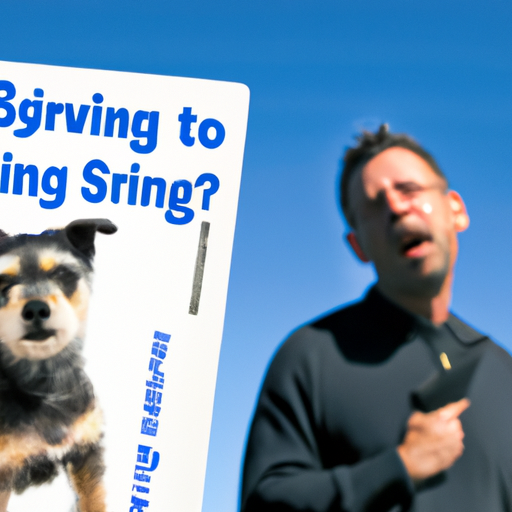Whether you’re a seasoned dog owner or new to the world of pet ownership, it’s common to encounter behavioral challenges with your furry friend. One of the most frequent issues is dogs barking at strangers. This article will guide you through effective methods to curb this behavior.
Understanding the Root Cause
First, it’s crucial to understand why your dog barks at strangers. Dogs bark for various reasons – fear, anxiety, territorial behavior, or merely excitement.
- Fear: Dogs may bark at strangers due to fear. They perceive the unfamiliar person as a potential threat.
- Excitement: Some dogs may bark out of sheer excitement. They get enthusiastic when they see new people.
- Territorial: Dogs are territorial creatures. They may bark to warn or ward off intruders in their space.
Training Your Dog
Training your dog is one of the most effective ways to deal with their barking habits. Remember, consistency is key when it comes to training.
- Desensitization: Gradually expose your dog to the stimulus that triggers the barking. Begin from a distance and reward them for not barking.
- Counter Conditioning: This involves changing your dog’s response to the stimuli. Instead of barking, train them to perform a positive behavior like sitting or staying.
- Positive Reinforcement: Reward your dog when they don’t bark at a stranger. This will encourage them to repeat the behavior.
Use of Distractions
Distracting your dog when they start barking can be another effective way to curb the behavior. You can use their favorite toy, treat, or a different command to draw their attention away from the stranger.
Seeking Professional Help
If your efforts aren’t showing significant improvement, consider seeking help from a professional dog trainer or an animal behaviorist. They have the expertise and experience to deal with such issues effectively.
Creating a Safe Space
Creating a safe space for your dog can help reduce anxiety and fear. This can be a specific room, a crate, or a spot where they feel safe and comfortable. This space should be accessible at all times, especially when there are strangers in the house.
Managing Your Reaction
How you react when your dog barks can significantly impact their behavior. It’s essential not to yell or punish them as it can heighten their anxiety. Instead, stay calm and assertive.
| Do’s | Don’ts |
|---|---|
| Stay calm | Don’t yell |
| Be consistent | Don’t punish randomly |
| Reward good behavior | Don’t reward barking |
Using Anti-Barking Devices
If necessary, there are various anti-barking devices available in the market. You can choose from bark collars, ultrasonic devices, and even calming sprays. Consult with a vet or a professional trainer before using these products.
Frequently Asked Questions
Q: How long will it take to train my dog not to bark at strangers?
A: The time required to train a dog can vary depending on the dog and the consistency of the training. It can take several weeks to months of consistent training.
Q: Can I use a bark collar on my dog?
A: Bark collars can be effective but should be used as a last resort. It’s always better to try training methods first. If you’re considering a bark collar, consult with a professional.
Q: Is it normal for my dog to bark at strangers?
A: Yes, it’s a normal behavior for dogs. They bark to communicate. However, excessive barking can become a problem and should be addressed.
Q: How can I prevent my dog from becoming fearful of strangers?
A: Socializing your dog from a young age can help prevent fear of strangers. Regularly exposing them to different people and environments can help them become more comfortable.
Remember, patience and consistency are the keys to curbing your dog’s barking behavior. Happy training!



